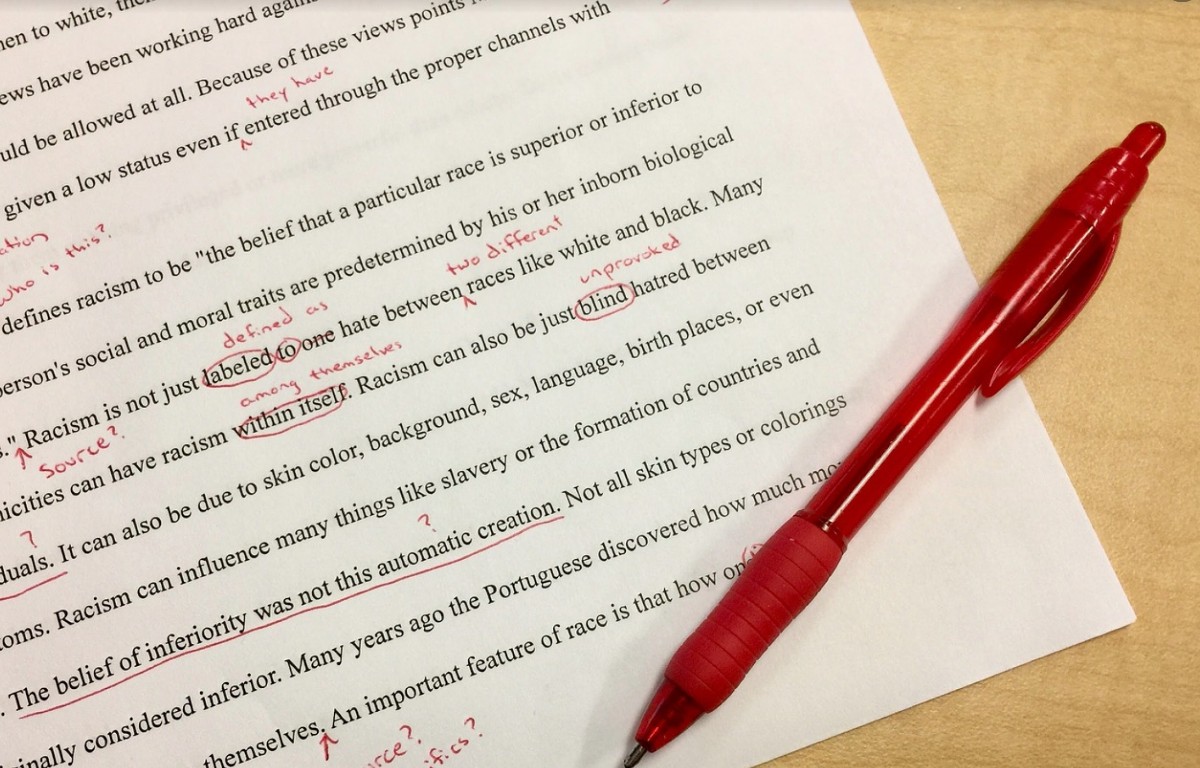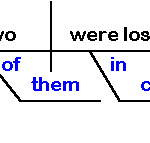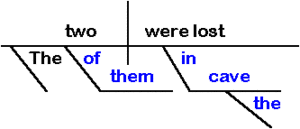
Definition
Editing refers to the act of critically reviewing a text with the goal of identifying and rectifying sentence and word-level problems.
For instance, when editing, writers may look for
- citation problems, such as
- problems weaving sources into your argument or analysis
- problems establishing the authority of sources
- problems using the required citation style
- grammar problems, such as
- stylistic problems, such as
- problems with diction, brevity, clarity, flow, inclusivity, register, and simplicity
When editing, writers tend to focus on local concerns as opposed to global concerns. Rather than focusing on big picture stuff like whether they’ve provided the evidence their reader needs to understand their argument or analysis–they focus on critiquing their texts at the word and sentence level. For instance, they may look for spelling errors, typos, word-level errors, punctuation errors, or sentence-structure errors.
Synonymous Terms
The terms, editing, revision, and proofreading may be used interchangeably by some people. However, subject matter experts in writing wtudies make distinctions between these intellectual strategies by noting their different foci:
a focus on the big picture – the global perspective.
a focus on line-by-line editing – the local perspective
Editing may also be referred to as rewriting, revising, modifying, and rewording.
Related Concepts: Critical Literacy; Global Perspective; Local Perspective; Proofreading; Revision; Structured Revision; Styles of Writing
Why Does Editing Matter?
Communication, literacy, interpretation—these are complex intellectual processes with loads of moving parts. Lots can go wrong.
For instance, imagine this situation: imagine you are deciding to purchase a used sports car and you reach out to a friend who knows a lot about older sports cars. You ask your friend if the price is right.
“No price too high” your friend tells you. So then you buy the car and drive it over to your friend to show it off. Well, what if your friend had meant to say “No, price too high.”
That single comma can matter in terms of dramatically altering how the document should be interpreted.
Sometimes it’s fine to ship off a text without editing it. In informal and personal occasions, you might even sound a bit odd if you edited your language for Standard Written English.
People may make judgments about your competencies as a communicator — researcher, thinker and communicator based on your writing-style. If you neglect editing,
- your readers, listeners, users may not be able to understand you
- your professionalism, your preparedness to get the job done, may be questioned.
How to Edit
The little changes that you make during editing and proofreading can have a profound and disproportionate effect on your target reader’s experience interpretation of your document.
The following techniques can help you critically evaluate your document at the sentence level:
- Don’t try to copyedit a document in one sitting. Instead, alternate editing with other activities.
- After working hard to develop the substance of a message, you may be weary of it and eager to turn it over to your instructor. If possible, however, you are wise to set the draft aside and work on another task before trying to edit it. For example, try editing after you first wake up, then after lunch, and then before dinner. Are you surprised that you can keep finding ways to improve the document?
- Don’t bother editing early drafts.
- It has become commonplace for postsecondary writing instructors in the U.S. to suggest that writers not worry about editing during the early stages of a writing project. This can be sound advice because time spent editing could be wasted if what you’re editing doesn’t respond to the demands of the school assignment or isn’t rhetorically sensitive. Plus, why edit a freewrite when the goal during freewriting is to develop ideas? That said, sometimes little edits can be pauses, like calm breaths after a sprint on a long-distance run, that leads to insights.
- There are three strategies you can use to help ignore the content of your message and concentrate solely on grammatical, mechanical, and formatting errors:
- Try reading your document backwards: Begin with the last sentence and move upward toward the introduction
- Place sheets of paper above and below each sentence in the document as you read through it
- Place slashes between each sentence and then evaluate each one separately
- If you are using a personal computer, try printing the document with a different font, such as size 14 or size 10 point instead of the normal size 12.
- Look for mistakes to cluster. When you find one error in paragraph seven, for example, carefully examine the surrounding sentences to see if you had a lapse of concentration when you wrote and copyedited that section.
- Look for errors that you often make, such as sentence fragments or subject-verb agreement.




